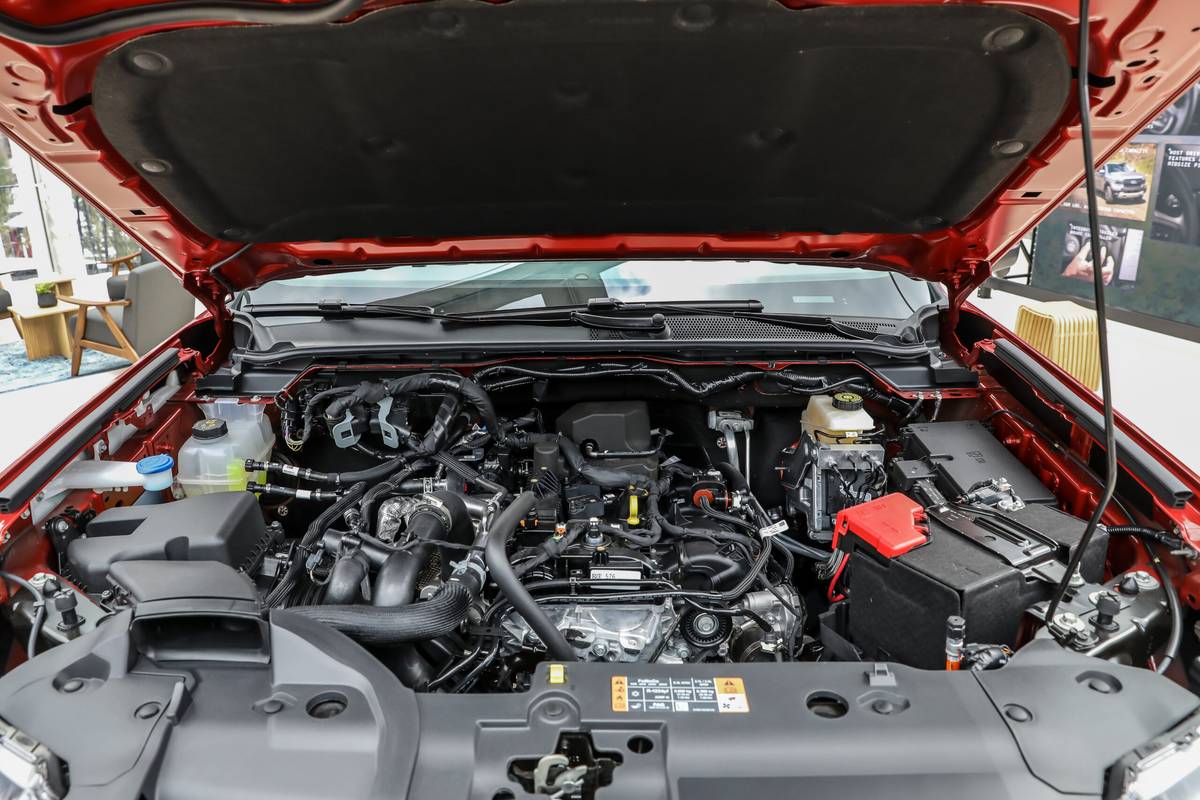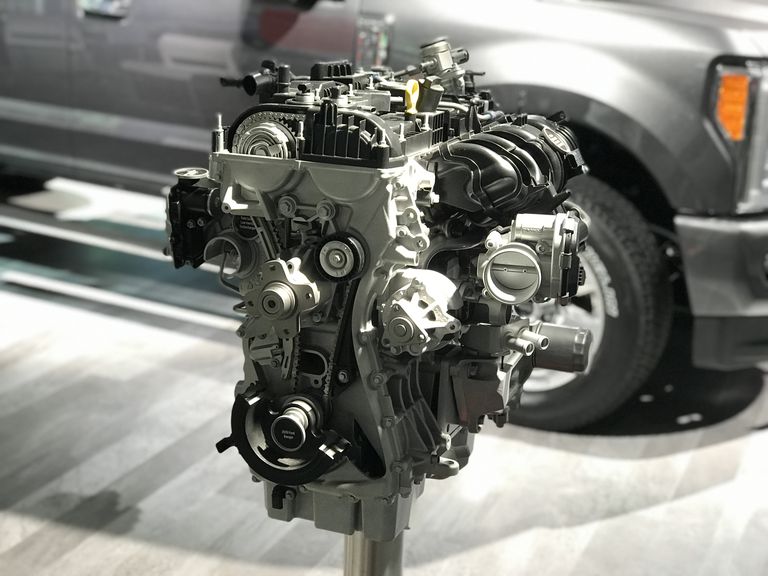Why the 2.2 Ford Ranger Engine Is a Popular Choice for Rugged and Reliable Performance
Why the 2.2 Ford Ranger Engine Is a Popular Choice for Rugged and Reliable Performance
Blog Article
Exactly How to Choose the Right Cars And Truck Engine for Optimum Efficiency and Effectiveness
Selecting the ideal automobile engine to achieve an optimum balance of performance and effectiveness demands a nuanced understanding of various engine kinds and their specific characteristics. Elements such as engine displacement, the number of cylinders, and fuel type play a pivotal duty in figuring out both power result and gas economy. While some may lean in the direction of performance-driven choices, others may prioritize sustainability and performance. Comprehending these characteristics is important; nevertheless, the obstacle hinges on aligning these qualities with your individual driving demands and choices. What considerations will eventually lead your decision?
Recognizing Engine Kind
When choosing a vehicle, one of the most important elements to consider is the engine type, which offers as the heart of the automobile. The engine kind dramatically influences the car's general performance, longevity, and viability for your driving needs. There are mostly 3 engine types to take into consideration: inner combustion engines (ICE), hybrid engines, and electrical engines.
Interior combustion engines stay one of the most typical, operating gasoline or diesel. They are known for their power and acceleration, making them suitable for performance-oriented automobiles. They might fall short in gas effectiveness and environmental influence.
Hybrid engines integrate an inner combustion engine with an electrical motor, supplying an equilibrium between efficiency and gas economic climate. They are increasingly prominent for chauffeurs looking for lowered discharges while still providing adequate power.
Electric engines, powered completely by batteries, are obtaining grip due to their ecological advantages and reduced running costs. They provide instant torque and a silent driving experience, making them suitable for metropolitan commuting.

Performance vs. Efficiency
Choosing the ideal engine type entails weighing the trade-offs in between efficiency and efficiency. Efficiency generally describes just how well an engine can deliver power and velocity, which is typically linked with bigger variation engines or those with turbocharging capabilities. These engines commonly supply exhilarating driving experiences and fast response times, making them prominent amongst fanatics.
On the other hand, efficiency concentrates on gas economic climate and lower emissions. Smaller engines, especially those furnished with innovative modern technologies such as straight gas injection and variable shutoff timing, tend to provide much better miles per gallon and decreased carbon impacts. While these engines might give up some power contrasted to their larger counterparts, they usually stand out in everyday driving circumstances where high performance is not constantly essential.
Inevitably, the selection in between efficiency and efficiency rest on individual concerns. A driver who values spirited driving may focus on a high-performance engine, while somebody looking for affordable travelling may lean toward a reliable option. Recognizing these trade-offs is crucial for making an educated decision that straightens with your driving demands and lifestyle, ensuring that the selected engine type complements your expectations for both efficiency and performance.
Trick Requirements to Consider
Recognizing vital specs is vital for making a notified choice about the appropriate vehicle engine. When selecting an engine, a number of vital aspects require consideration to ensure optimal efficiency and efficiency.
It suggests the total quantity of the engine's cylinders and typically correlates with power outcome; larger variations often yield even more power. Engines with even more cylinders can give smoother procedure and higher power, while smaller sized setups can boost fuel efficiency.
Additionally, the engine's arrangement, whether inline, V-type, or rotating, affects the overall style and efficiency features of the vehicle - 2.2 ford ranger engine. Turbocharging and supercharging modern technologies should additionally be evaluated; these increase an engine's power output without substantially increasing its dimension, thus boosting effectiveness
Gas type is another essential consideration, as it affects both efficiency and costs. Lastly, the engine's compression ratio influences performance and power distribution; a higher proportion usually causes much better effectiveness, but might call for exceptional fuel. By meticulously assessing these specifications, you can choose an engine that aligns with your performance and efficiency objectives.
Evaluating Driving Needs
Evaluating driving needs is a fundamental action in establishing the appropriate auto engine for your way of living and usage patterns. If your driving primarily is composed of short commutes in city atmospheres, a smaller engine with great fuel performance may be sufficient.
Take into consideration the surface you normally navigate. Hilly or sturdy landscapes may require an engine with higher torque for far better performance. In addition, assess passenger and freight needs; bigger households or those who transfer products may gain from vehicles with increased power and capacity.
Diesel engines typically use premium torque and fuel economic climate for much heavier lorries, while gasoline engines may supply a smoother and quieter ride. Element check out here in ecological considerations, as crossbreed or electrical engines can provide an extra sustainable choice without sacrificing performance.
Future Patterns in Engine Modern Technology
As the automobile market continues to develop, advancements in engine innovation are paving the method for extra efficient and lasting driving experiences. One considerable trend is the change towards electrification, with hybrid and completely electrical powertrains obtaining importance. Automakers are spending heavily in battery modern technology to boost energy thickness and minimize charging times, inevitably enhancing the functionality of electric cars (EVs)
An additional emerging pattern is the growth of hydrogen gas cell engines. 2.2 ford ranger engine. These systems offer the capacity for zero-emission driving while providing refueling times similar to typical gas engines. Furthermore, improvements in combustion technology, such as variable compression proportions and improved turbocharging, are maximizing conventional interior burning engines for much better performance and efficiency
Digital integration is likewise an important aspect of future engine innovation. The execution of expert system and maker understanding allows for real-time information analysis, allowing smarter engine administration systems that adapt to driving conditions and enhance gas effectiveness.

Conclusion
In conclusion, selecting the appropriate vehicle engine necessitates a thorough assessment of various factors, including engine type, efficiency requirements, and performance goals. By recognizing the differences in between different engine kinds and taking into consideration essential specs, people can straighten their choices with certain driving requirements. As advancements in engine innovation continue to emerge, remaining informed concerning weblink future patterns will certainly even more enhance decision-making, ultimately resulting in an automobile that stabilizes performance and gas effectiveness properly.
Picking the suitable car engine to accomplish an ideal balance of efficiency and performance demands a nuanced understanding of different engine types and their particular qualities. There are largely 3 engine kinds to take into consideration: internal combustion engines (ICE), hybrid engines, and electric engines.
Performance typically refers to exactly how well an engine can deliver power and acceleration, which is often linked with bigger displacement engines or those with turbocharging abilities. Diesel engines commonly offer superior torque and gas economic climate for much heavier automobiles, while fuel engines might offer Extra resources a smoother and quieter ride.In verdict, choosing the suitable cars and truck engine requires a comprehensive evaluation of various elements, including engine type, performance demands, and effectiveness goals.
Report this page